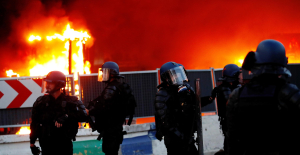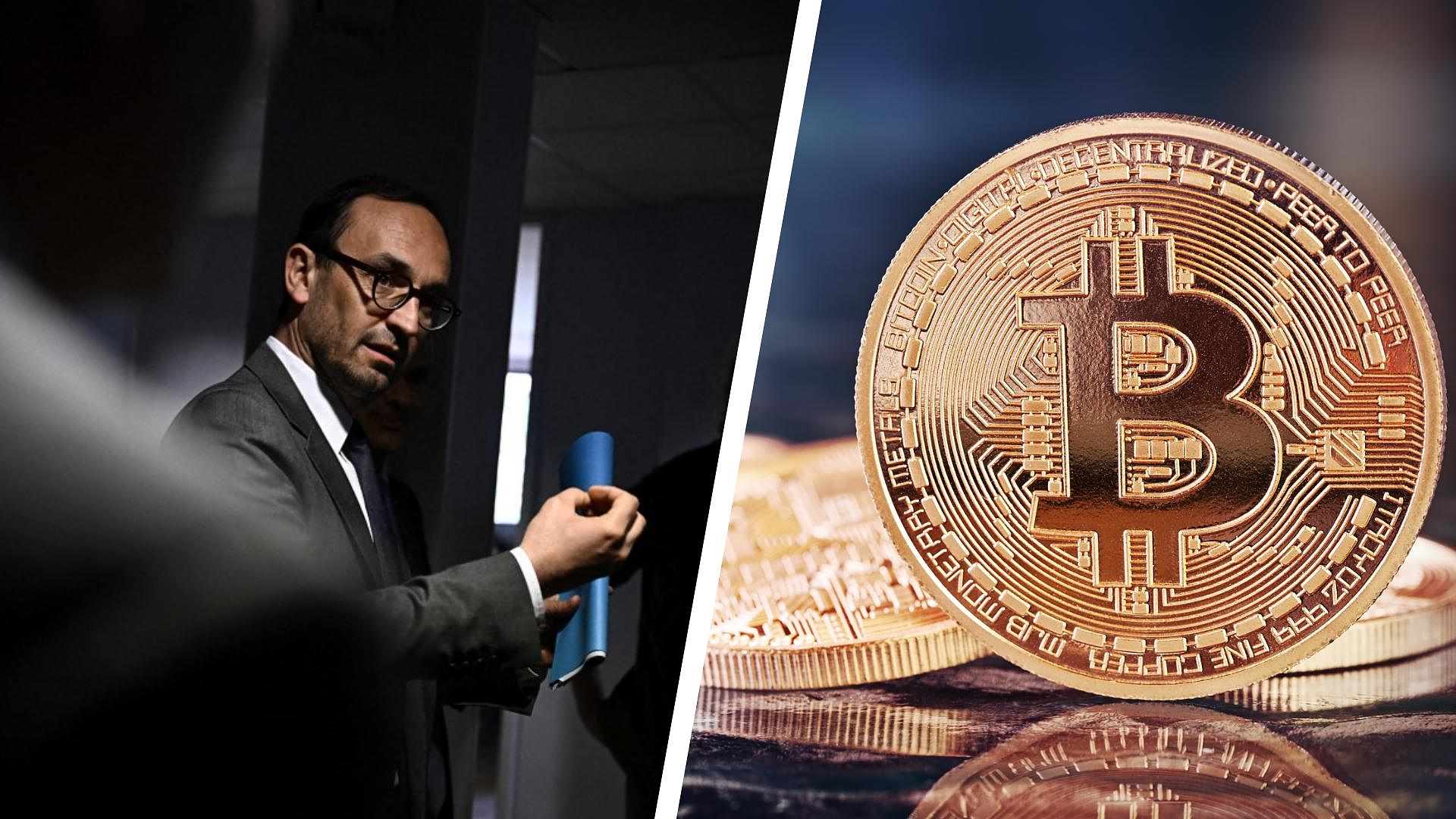It is not the slogan of the recalcitrant macho, but of the one who intends to submit to Justice. The reform of the Constitutional Court has reached the last minutes of the extension mired in uncertainty, although there are numerous risks that, in the current circumstances, Pedro Sánchez will try to force the machinery to try to control the last institution that, due to the consensus that the Magna Carta itself demands, it has not been able to take the assault.
Fortunately, the demand for this consensus is what prevents any politician with little sense of what the rule of law means from making a hole in the walls of Justice and leaving the democratic system at the mercy of assailants. If the Constitution had not established the need for these consensuses, the possibilities that Justice would stop representing collective values to be instrumentalized would have multiplied. Hence, any society must take special care to isolate those who show an unhealthy rush for wanting to avoid the agreement on the grounds that the other party does not want to. Tomorrow the deadline expires for four of the twelve members of the Constitutional to be renewed. Two should be proposed by the Government and another two by the General Council of the Judiciary, but the fact that the Executive has blocked the capacity of the governing body of the judges to propose appointments, on the grounds that their mandate has expired since three years ago, leads the institutions to a dangerous dead end. The PSOE exclusively blames the PP for blocking the agreement and has managed to impose this story, which, with all its nuances, does not fit reality, since both parties share the responsibility. Pablo Casado could drag his feet, but Sánchez gave ample evidence of not acting in good faith, showing the profile of someone more willing to impose than to agree (especially when his interlocutor was on the right). And that first verb constitutes an almost insurmountable handicap when it comes to essential institutions. I refer to the facts. Sánchez has abused his legislative powers and has given excessive signs of wanting to put the bodies that must observe a scrupulous neutrality at his service, and always with the fallacious argument of depoliticizing them. During these years it has been seen how he forced the interpretations of the State Attorney or how he twisted the Prosecutor's Office with the implicit interference of the State Attorney General herself, Dolores Delgado. With this background, it would not be strange that he now tries to violate the process to put the Constitutional Court under the tutelage of his own patrimonial concept of Law and Justice. No democracy is capable of developing in a healthy way on a majority that intends to capitalize without any scruple all the political spoils. Doing so destroys the pillars on which coexistence is based. And it seems very evident that Sánchez has tried without the slightest shame. His words still resonate this week in the Senate when, addressing a senator from Esquerra, he said "it is not the same that the left rules than the right in this country; we are committed to coexistence, and if you do not ask your colleagues who were previously in prison and now they are out thanks to the government", referring to the pardons given to the procés prisoners against the judgment of the sentencing court and without any sign of repentance.
Unfortunately, Sánchez has often shown that essential principles for building a democracy, such as the separation of powers or equality before the law, are terribly malleable when it comes to protecting their particular interests. A pardon granted in the face of blackmail is not a guarantee of free coexistence; it is a surrender, a complete contradiction. "We have to put an end to pardons, that is to say, to the interference of the executive power in decisions of the judicial power," Sánchez said when he stood for election. "What do those who accused me of being a politician who would do anything for power and who was willing to agree with the independentistas in order to be president of the Government say?" He asked himself before surrendering himself in the arms of separatism. With this background, when the president solemnly affirms that "this is a government that complies with the Constitution", the listeners cannot get over their astonishment, especially when there are several sentences that say the opposite. The president has long since lost credibility, which is the most precious asset that any politician can have. The function of the courts, and also, to a large extent, of the Constitutional Court, is to prevent the Executive from abusing its power, bypassing the Law. It was already a problem in itself that the main parties after the 1985 reform had flooded with their He influences Justice to the point of making the judges believe that their careers did not depend so much on their good performance as on their alignment. But at least the need for a three-fifths agreement to renew the governing body of the judges forced these parties to carry out an exercise in moderation to find figures of consensus that would guarantee the existence of balanced profiles. As the political consensus of the majorities in the election of judges is destroyed to try to buy the support of minorities, the last thin red line that stopped the irruption of sectarianism is broken, thereby endangering the very institutions that give Support our democracy. That Enrique Santiago, a communist deputy for Podemos, nostalgic for Lenin and a lawyer in his day for the FARC, is Sánchez's interlocutor to address the next renewal of the Constitutional Court, gives an idea of the lightness with which the sanchismo watches over the institutions . Major issues hang from the renewal, such as the application of the Law on Catalan, from which the basic rights of many citizens hang.
It is possible that the Government will try to force a partial renewal of the Constitutional -only its two members-. It is in the hands of that high body to make the criteria clear so that the basic consensus that has made coexistence possible is not avoided. If someone believes, as the Prosecutor's Office believed, that the Constitutional Court depends on the Government, it is necessary that they lose all hope.

 What is chloropicrin, the chemical agent that Washington accuses Moscow of using in Ukraine?
What is chloropicrin, the chemical agent that Washington accuses Moscow of using in Ukraine? Poland, big winner of European enlargement
Poland, big winner of European enlargement In Israel, step-by-step negotiations for a ceasefire in the Gaza Strip
In Israel, step-by-step negotiations for a ceasefire in the Gaza Strip BBVA ADRs fall almost 2% on Wall Street
BBVA ADRs fall almost 2% on Wall Street Breast cancer: less than one in two French women follow screening recommendations
Breast cancer: less than one in two French women follow screening recommendations “Dazzling” symptoms, 5,000 deaths per year, non-existent vaccine... What is Lassa fever, a case of which has been identified in Île-de-France?
“Dazzling” symptoms, 5,000 deaths per year, non-existent vaccine... What is Lassa fever, a case of which has been identified in Île-de-France? Sánchez cancels his agenda and considers resigning: "I need to stop and reflect"
Sánchez cancels his agenda and considers resigning: "I need to stop and reflect" The Federal Committee of the PSOE interrupts the event to take to the streets with the militants
The Federal Committee of the PSOE interrupts the event to take to the streets with the militants The growth gap between Europe and the United States will narrow in 2025
The growth gap between Europe and the United States will narrow in 2025 A report recommends the creation of a “riot fund” to cover communities
A report recommends the creation of a “riot fund” to cover communities With 3.5 billion euros collected, life insurance recorded its best month in 10 years in March
With 3.5 billion euros collected, life insurance recorded its best month in 10 years in March Volvic factory shut down after “an act of malicious intent”: production can resume “at the earliest” on Friday
Volvic factory shut down after “an act of malicious intent”: production can resume “at the earliest” on Friday Jean Reno publishes his first novel Emma on May 16
Jean Reno publishes his first novel Emma on May 16 Cannes Film Festival: Meryl Streep awarded an honorary Palme d’Or
Cannes Film Festival: Meryl Streep awarded an honorary Palme d’Or With A Little Something Extra, Artus and his disabled actors do better than Intouchable on the first day
With A Little Something Extra, Artus and his disabled actors do better than Intouchable on the first day Madonna ends her world tour with a giant - and free - concert in Copacabana
Madonna ends her world tour with a giant - and free - concert in Copacabana Omoda 7, another Chinese car that could be manufactured in Spain
Omoda 7, another Chinese car that could be manufactured in Spain BYD chooses CA Auto Bank as financial partner in Spain
BYD chooses CA Auto Bank as financial partner in Spain Tesla and Baidu sign key agreement to boost development of autonomous driving
Tesla and Baidu sign key agreement to boost development of autonomous driving Skoda Kodiaq 2024: a 'beast' plug-in hybrid SUV
Skoda Kodiaq 2024: a 'beast' plug-in hybrid SUV The home mortgage firm rises 3.8% in February and the average interest moderates to 3.33%
The home mortgage firm rises 3.8% in February and the average interest moderates to 3.33% This is how housing prices have changed in Spain in the last decade
This is how housing prices have changed in Spain in the last decade The home mortgage firm drops 10% in January and interest soars to 3.46%
The home mortgage firm drops 10% in January and interest soars to 3.46% The jewel of the Rocío de Nagüeles urbanization: a dream villa in Marbella
The jewel of the Rocío de Nagüeles urbanization: a dream villa in Marbella Europeans: a senior official on the National Rally list
Europeans: a senior official on the National Rally list Blockade of Sciences Po: the right denounces a “drift”, the government charges the rebels
Blockade of Sciences Po: the right denounces a “drift”, the government charges the rebels Even on a mission for NATO, the Charles-de-Gaulle remains under French control, Lecornu responds to Mélenchon
Even on a mission for NATO, the Charles-de-Gaulle remains under French control, Lecornu responds to Mélenchon “Deadly Europe”, “economic decline”, immigration… What to remember from Emmanuel Macron’s speech at the Sorbonne
“Deadly Europe”, “economic decline”, immigration… What to remember from Emmanuel Macron’s speech at the Sorbonne These French cities that will boycott the World Cup in Qatar
These French cities that will boycott the World Cup in Qatar NBA: the Pacers and the Knicks will be there in the play-off semi-finals
NBA: the Pacers and the Knicks will be there in the play-off semi-finals Tennis: like last year, Sabalenka joins Swiatek in the final in Madrid
Tennis: like last year, Sabalenka joins Swiatek in the final in Madrid OM: scorer against Bergamo, Mbemba moved after the final whistle
OM: scorer against Bergamo, Mbemba moved after the final whistle OM-Atalanta: the lines of the match
OM-Atalanta: the lines of the match


















